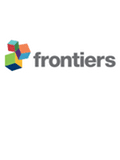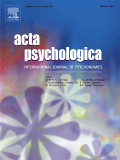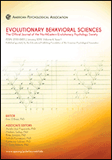
Behavioral Sciences
Scope & Guideline
Connecting disciplines to illuminate behavioral phenomena.
Introduction
Aims and Scopes
- Psychological Mechanisms:
Research on cognitive and emotional processes that shape human behavior, including studies on anxiety, depression, and coping strategies. - Social Dynamics:
Exploration of interpersonal relationships, social influences, and group behavior, particularly in the context of education, work, and community settings. - Cultural Influences:
Investigating how cultural backgrounds and societal norms affect behavior and mental health, with a focus on diverse populations. - Health and Well-Being:
Studies on the interplay between psychological factors and physical health, including stress management, resilience, and the impact of lifestyle on mental health. - Technological Impact:
Examining the role of technology in shaping behaviors, including the effects of social media, online learning, and digital communication on psychological well-being. - Intervention Strategies:
Development and evaluation of interventions aimed at improving mental health outcomes and promoting positive behavior change in various populations.
Trending and Emerging
- Interdisciplinary Approaches:
There is an increasing trend towards integrating insights from multiple disciplines, such as neuroscience, sociology, and economics, to better understand complex human behaviors. - Impact of COVID-19:
Research focusing on the psychological and behavioral effects of the COVID-19 pandemic, including mental health challenges, coping strategies, and shifts in social behavior, is prominent. - Digital Behavior Research:
Growing interest in studying the impact of digital environments on behavior, particularly related to social media usage, online learning, and virtual interactions. - Cultural Competence in Interventions:
A rising emphasis on culturally sensitive interventions that address diverse populations' unique needs and experiences, particularly in mental health and education. - Sustainable and Pro-Environmental Behavior:
An emerging focus on understanding and promoting behaviors that contribute to sustainability, particularly in the context of climate change and environmental psychology. - Resilience and Mental Health:
Increased research on resilience as a protective factor against mental health issues, with a focus on developing strategies to enhance resilience in various populations.
Declining or Waning
- Traditional Behavioral Models:
The reliance on established behavioral models (e.g., the Theory of Planned Behavior) seems to be decreasing as researchers explore more dynamic and context-specific frameworks. - Focus on Individualism:
Research centered solely on individualistic approaches to understanding behavior is waning, with a shift towards more collectivist perspectives that consider social and relational factors. - Static Psychological Assessments:
There is a decline in studies using traditional static assessments of psychological constructs, with a growing preference for dynamic and multi-dimensional approaches. - Generalized Findings:
Research that offers broad, generalized conclusions without considering cultural or contextual nuances is less frequently published, as specificity and relevance to particular populations gain importance.
Similar Journals

Health Psychology Report
Unlocking New Perspectives in Psychological Well-BeingHealth Psychology Report is an esteemed journal published by TERMEDIA PUBLISHING HOUSE LTD, dedicated to advancing research and practice in the fields of clinical psychology and psychiatry. Established as an Open Access journal in 2013, it allows unrestricted access to groundbreaking research, brimming with innovations and insights that address psychological and mental health challenges in contemporary society. With its registered ISSN 2353-4184 and E-ISSN 2353-5571, the journal serves as a critical platform for professionals and academics to disseminate knowledge and foster collaboration. Recognized for its influence, it holds a Q3 ranking in both Clinical Psychology and Psychiatry and Mental Health, alongside Scopus rankings that place it within the top half of its field. Operating from Poznań, Poland, the journal covers a spectrum of topics aligned with its objective to bridge the gap between health psychology research and practical application, making it essential for those invested in the improvement of mental health outcomes.

CURRENT PSYCHOLOGY
Fostering Knowledge in the Evolving Field of PsychologyCURRENT PSYCHOLOGY is a renowned journal published by SPRINGER, focusing on a myriad of topics within the field of psychology. With its ISSN 1046-1310 and E-ISSN 1936-4733, this journal has established a significant footprint since its inception in 1981. Based in the United States, at One New York Plaza, Suite 4600, New York, NY 10004, CURRENT PSYCHOLOGY caters to an international audience of researchers, professionals, and students seeking to advance their understanding of both theoretical and applied psychology. Rated in the Q1 category for miscellaneous psychology in 2023 and holding a respectable rank of 58 out of 216 in the general psychology field according to Scopus, the journal emphasizes high-quality research and innovation. While it does not currently offer open access, it is committed to disseminating essential insights that address contemporary psychological issues, promoting a deeper engagement with the evolving landscape of psychology.

Frontiers in Integrative Neuroscience
Exploring the intricate dynamics of neural research.Frontiers in Integrative Neuroscience, published by FRONTIERS MEDIA SA, is an esteemed open-access journal dedicated to advancing our understanding of the intricate workings of the nervous system. Since its inception in 2007, this journal has become a key resource for researchers and professionals in the field, covering a wide range of topics including cellular and molecular neuroscience, cognitive neuroscience, and sensory systems. With a reputation bolstered by its open-access model, Frontiers in Integrative Neuroscience aims to promote expedient dissemination of high-quality research, ensuring that all findings are readily accessible to the scientific community and beyond. The journal has achieved a commendable recognition, ranking in the upper tiers of its respective categories according to Scopus, with a Q2 ranking in both cognitive neuroscience and sensory systems, and a Q3 ranking in cellular and molecular neuroscience. Based in Switzerland, it continues to be a pivotal platform for innovative research that shapes our understanding of neural dynamics, encouraging collaboration and knowledge exchange among scholars worldwide.

International Journal of School & Educational Psychology
Cultivating Knowledge in Educational and Developmental PsychologyThe International Journal of School & Educational Psychology, published by Taylor & Francis Ltd, is a premier academic journal dedicated to advancing the fields of educational and developmental psychology. With an ISSN of 2168-3603 and E-ISSN 2168-3611, the journal has been a valuable resource since its establishment in 2013, with contributions to the field continuing through 2024. The journal's commitment to rigorous research is evident in its Q2 ranking in both Developmental and Educational Psychology and Education categories in 2023, as well as its notable Scopus rankings, placing it in the top 25% of educational journals. Although it does not offer open access options, the journal provides an essential platform for disseminating high-quality research that enriches the understanding of psychological principles in educational contexts. Targeting researchers, professionals, and students alike, the International Journal of School & Educational Psychology strives to highlight innovative methodologies, practical applications, and theoretical discussions that shape educational practices and foster optimal learning environments.

ACTA PSYCHOLOGICA
Elevating the discourse in developmental and cognitive psychology.ACTA PSYCHOLOGICA, published by Elsevier, is a leading journal that has served the field of psychology since its inception in 1936. With an impact factor that reflects its authority and significance in the discipline, this journal has become essential for researchers, professionals, and students alike. Open Access since 2021, ACTA PSYCHOLOGICA ensures that groundbreaking psychological research is widely accessible, promoting the dissemination and application of knowledge across various branches of psychology including Developmental and Educational Psychology and Experimental and Cognitive Psychology. The journal is categorized in the Q1 and Q2 quartiles, highlighting its high-quality contributions to the field, supported by robust rankings within Scopus. Located in Amsterdam, Netherlands, this journal remains a vital resource for advancing psychological science and fostering collaborative research worldwide.

JOURNALS OF GERONTOLOGY SERIES B-PSYCHOLOGICAL SCIENCES AND SOCIAL SCIENCES
Transforming Understanding of Aging in Modern SocietyJOURNALS OF GERONTOLOGY SERIES B: PSYCHOLOGICAL SCIENCES AND SOCIAL SCIENCES, published by Oxford University Press Inc, stands as a premier scholarly outlet dedicated to the interdisciplinary study of aging, psychological sciences, and social relations. With a notable E-ISSN of 1758-5368 and a track record from 1995 to 2024, this journal has firmly established itself within the top quartile (Q1) across multiple domains including Clinical Psychology, Geriatrics, Gerontology, and Social Psychology. Its rigorous standards propel significant research that contributes to understanding the complexities of aging in contemporary society. Researchers and professionals engaged in these fields benefit from its high-impact publications, underscored by impressive rankings—such as 6th in Geriatrics and Gerontology—positioning it amongst the leading journals globally. While there are currently no Open Access options available, the journal remains a vital resource for advancing knowledge on life-span and life-course studies, ensuring that critical insights reach its dedicated audience of scholars and practitioners.

Acta Psychologica Sinica
Fostering Excellence in Psychological Research and ThoughtActa Psychologica Sinica, published by SCIENCE PRESS, is a premier journal in the field of psychology, dedicated to advancing the understanding of psychological science through rigorous research. Located in Beijing, China, this journal covers a broad spectrum of topics within the field, aiming to foster the dissemination of innovative and influential psychological research. With an impact factor that reflects its growing prominence, it is classified in the Q3 quartile for Psychology (miscellaneous) as of 2023, indicating its relevancy and contribution to the discipline. Researchers, professionals, and students alike will find valuable insights within its pages, as it encompasses diverse psychological perspectives and methodologies. Although it operates under a traditional publication model without open-access options, the quality of research featured here makes it a vital resource for those seeking to stay informed on current developments and trends in psychology.

Evolutionary Behavioral Sciences
Empowering Researchers to Navigate the Evolutionary Landscape of BehaviorEvolutionary Behavioral Sciences, an esteemed journal published by the American Psychological Association, offers a compelling platform for researchers and professionals engaged in the fields of Experimental and Cognitive Psychology and Social Psychology. With an ISSN of 2330-2925, this journal has been a vital resource since its inception in 2014, aiming to bridge the gap between evolutionary theory and behavioral science, thereby fostering an interdisciplinary dialogue among scholars. Despite its current Q3 ranking in both relevant categories, it is poised for growth and increased visibility within the academic community, addressing contemporary issues through rigorous empirical research and theoretical advancements. Access to the journal is restricted, which bolsters its scholarly integrity, while its publication from one of the leading psychological associations signifies its commitment to excellence in behavioral research. Through the convergence of innovative studies and evolving methodologies, Evolutionary Behavioral Sciences underscores the importance of understanding human behavior from an evolutionary perspective, making it an essential read for anyone interested in the dynamics of behavior, cognition, and social interaction.

CANADIAN JOURNAL OF BEHAVIOURAL SCIENCE-REVUE CANADIENNE DES SCIENCES DU COMPORTEMENT
Bridging theory and practice in understanding behavior.Canadian Journal of Behavioural Science - Revue Canadienne des Sciences du Comportement (ISSN: 0008-400X, E-ISSN: 1879-2669), published by the Canadian Psychological Association, serves as a vital conduit for research and discourse in the dynamic field of psychology. Since its inception in 1973, the journal has been committed to advancing knowledge in behavioral science, offering a platform for empirical studies, theoretical explorations, and practical applications. It notably holds a 2023 Scopus Q2 ranking in the category of Psychology (Miscellaneous), showcasing its influence with a percentile rank of 77th among its peers, and underscores its commitment to quality research. The journal, although utilitarian in shifting between specific years of publication from 1973 to 2024, consistently aims to enhance the understanding of human behavior through rigorous scholarship. Authors and readers alike benefit from the journal's focus on a wide array of interdisciplinary topics, making it an indispensable resource for researchers, professionals, and students dedicated to the intricacies of psychological science. For those looking to remain at the forefront of the behavioral sciences, the Canadian Journal of Behavioural Science continues to be a go-to publication for such endeavors.

Journal of Behavioral Science
Illuminating the path of social psychology breakthroughs.Welcome to the Journal of Behavioral Science, a distinguished publication dedicated to advancing the field of behavioral sciences through rigorous research and academic inquiry. Published by the Behavioral Science Research Institute at Srinakharinwirot University in Thailand, this journal not only enriches the landscape of Applied Psychology and Social Psychology but also serves as a vital resource for scholars and practitioners alike. With an ISSN of 1906-4675 and an E-ISSN of 1906-4675, the journal enjoys a notable presence with its Q3 and Q4 categorizations in the 2023 quartile rankings for applied and social psychology, respectively. Covering a broad scope of topics, the journal aims to facilitate the dissemination of innovative research findings and theoretical advancements, emphasizing the importance of behavioral insights in addressing contemporary social issues. Though it currently lacks open access, the journal is made available through esteemed global academic platforms, thereby reaching a diverse audience. With a commitment to quality and integrity, the Journal of Behavioral Science is positioned as an essential outlet for impactful research, contributing to the ever-evolving field of behavioral studies.